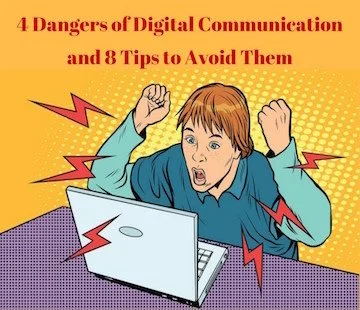We’ve all heard the phrase “trust, but verify.” It sounds like something reserved for world leaders or high-stakes negotiations. But in reality, it’s a principle that belongs in our everyday lives—because when we don’t balance trust with verification, we risk getting hurt.
Read MoreDifficult conversations are an inevitable part of life—at work, at home, and in relationships. Whether you’re delivering tough feedback, addressing a conflict, or navigating a sensitive topic, the ability to have hard conversations with clarity and compassion is a critical skill. Unfortunately, many people either avoid these moments altogether or approach them in ways that cause unnecessary tension or damage.
Read MoreThink about the best environments you’ve ever been a part of. Was it a workplace where people felt safe to speak up? A team where ideas flowed freely? A space where growth and collaboration thrived?
That didn’t happen by chance. It was created.
Read MoreWhen we think about the best leaders we've encountered, a common trait often stands out: they're all great communicators. Whether it's inspiring a team, guiding a company through change, or fostering innovation, effective communication is at the heart of successful leadership. In this article, we'll dive into why great leaders excel at communication and how it boosts productivity and success within an organization.
Read MoreBecoming a leader is a significant milestone, but despite how long it took you to reach this point, your journey is just beginning.
As a new leader, stepping into your role with confidence and clarity is essential to making an immediate impact.
Whether you're leading a team, a department, or an entire organization, here's what you need to know and do to be successful right away.
Read MoreAs head of school, I would have my assistant head of school read sensitive emails that I was planning on sending.
As time went on, I would stop sending such emails entirely, and insist on face-to-face meetings.
That's because we do a terrible job of accurately reading intent when it comes to things like email.
We lose sight of tonality. We lose sight of intent.
Read MoreIn my last post, I shared insights from a group of leaders about how to position ourselves and our businesses for coronavirus and “disaster-proof” our lives moving forward. This post follows along the same theme and highlights the insights of some powerful coaches.
How to Disaster-Proof Your Communication with Lila Smith, communication expert
As Smith sees it, COVID has confronted us with our core values. We have been forced to “check in” with ourselves and reassess our past behaviors as we consider life moving forward. What is it that is most important to us and should be performed and engaged with more in the future? And what have we been doing that hasn’t served us and should be scaled back as we begin to emerge from quarantine?
Read MoreThey thought that I was hiding. Or worse, disinterested.
As an introverted head of school, I would often close my office door.
It helped me focus, think, and get more done.
And I didn't think much of it.
But others did.
Largely because my predecessor kept an open door policy.
And was always accessible.
When people lack information, they typically assume the worst case scenario.
It’s no surprise that we use email and text for so many of our communications. It’s often faster, it’s neater, and it can easily be saved for future reference without paper sifting and clutter. Digital communication allows us to send and reply at our own convenience. And you can communicate with several people at one time,
But there are also some serious dangers that, unless managed properly, will turn these advantages into a huge disadvantage.
Read More









